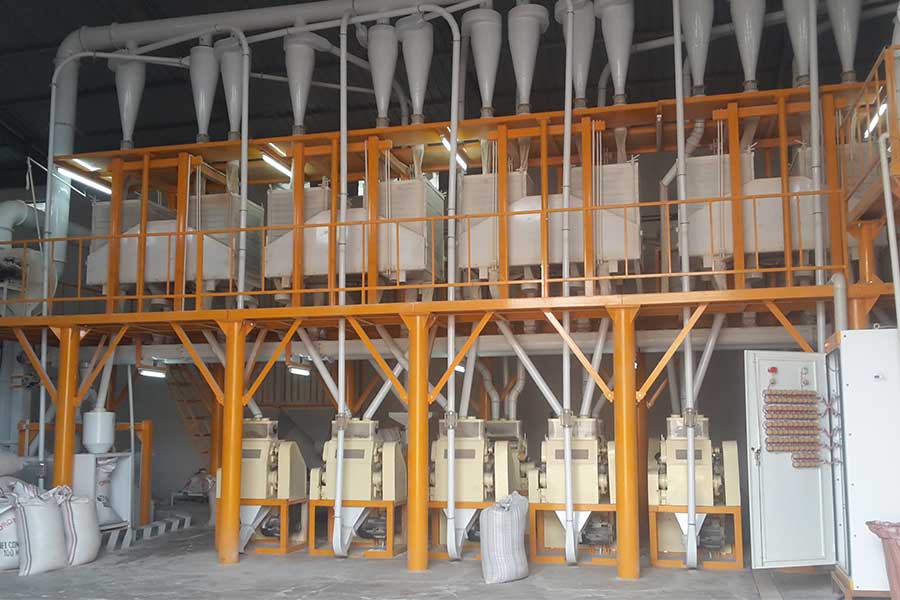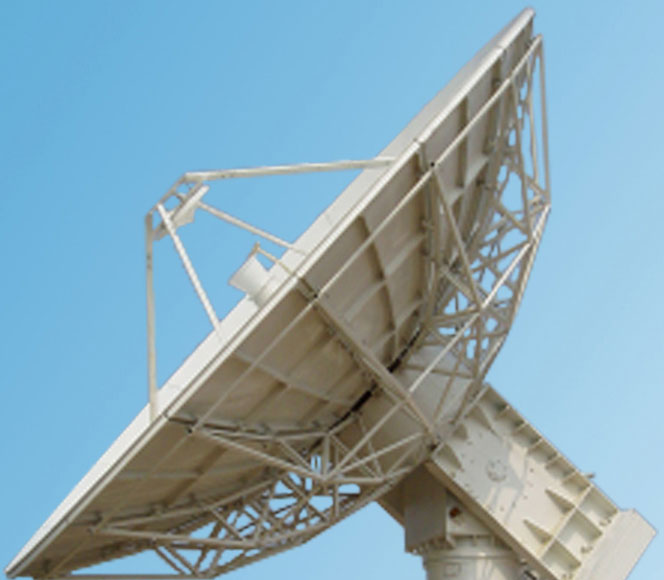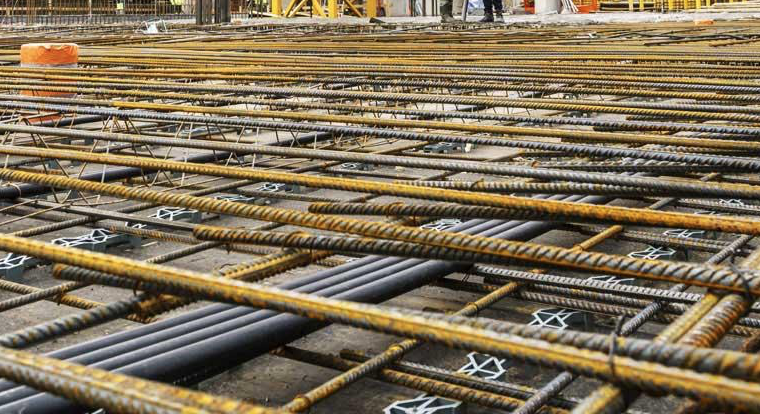
Fortune News | May 23,2020
Mar 2 , 2019
A new hot mill steel manufacturing plant with an investment that may scale up to 300 million Birr is coming to Dukem, Oromia Regional State.
Resting on a 25,676Sqm plot, the plant will have a production capacity of 100,000tn of reinforcement bars annually and employ 66 workers.
Samkit Steel Manufacturing Plc, a company established a decade and a half ago by two brothers, Tewolde and Kibrom Gidey, has already constructed the steel structure of the company on a 7,000Sqm plot. Currently, Samkit is searching for a company that will supply and commission the required machinery.
The management of the company expects the new plant to be operational in the coming year.
"We wanted to invest in rebar since we are familiar with the market," said Tewelde Gidey, CEO of the company that imports and distributes rebar from Turkey, China and Russia.
Samkit Steel and the state policy bank, the Development Bank of Ethiopia, signed a financing agreement a year ago - the latter to cover three-quarters of the estimated initial total investment of 218 million Br that the new plant will cost.
"The project cost may grow as high as 300 million Br due to inflation," said Tewelde.
The company has already signed an agreement with Ethiopian Electric Power to get direct electric supply from the national grid.
The company is also in the process of procuring step-down transformers for the electric power supply, according to the Finance Manager of the company, Melese Kasie.
The management of Samkit is planning to source billets, the raw material required in the manufacturing process, from abroad. The use of scrap metal in steel production is prohibited by DBE financing rules.
"Foreign currency will be our main challenge to import billets," said Tewelde. "We are planning to secure a license to export coffee and other crops to generate forex for imports."
Currently, there are a total of 190 companies registered to manufacture iron and steel products with an annual production capacity of 5.9 million tonnes of steel. The country spends an enormous amount of foreign currency to import steel products, yet the national demand for rebar has not been met.
The main reason for the gap in supply is the underperformance of the local steel manufacturing companies, according to Solomon Mulugeta, general manager of the Ethiopian Association of Basic Metals & Engineering Industries.
The average construction project in the country consumes 14pc of it budget in rebar procurement. Four years ago the construction sector's contribution to Gross Domestic Product was 16pc, which jumped to 19.3pc in the last fiscal year.
"Even though the capacity of local companies shows improvement, they are still operating at 20pc to 30pc of production capacity," said Solomon. "Raw materials shortage, power interruptions and lack of proper management are the causes."
Steel manufacturers need 6.6 million tonnes of billet annually. To buy this, more than 1.3 billion dollars in foreign exchange is needed, which accounts for one-third of the country’s export earnings.
Foreign companies are favoured in a directive issued two years ago by the National Bank of Ethiopia, which enabled them to import raw materials easily, according to Solomon.
The directive allows foreign investors to get guarantees from local banks to import raw material.
"The directive is misguided and puts local investors at a disadvantage," said Solomon.
“We have requested that NBE review this directive, and we are awaiting a response."
Abebe Dinku (Prof), a civil engineer and expert in the construction sector, commends the new investment, citing the supply gap in the product.
"It will help bridge the gap between supply and demand,” Abebe said. "Plus the increase in supply could lead to price reductions that were caused by hoarding practices of some suppliers and a general shortage of the product."
PUBLISHED ON
Mar 02,2019 [ VOL
19 , NO
983]

Fortune News | May 23,2020

Fortune News | Nov 21,2018

Fortune News | Apr 25,2020

Radar | Jul 27,2019

Radar | Nov 24,2024

Fortune News | Aug 24,2019

Viewpoints | Jul 08,2023

Fortune News | Nov 12,2022

Fortune News | Aug 11,2024

Radar | Jun 12,2023

Dec 22 , 2024 . By TIZITA SHEWAFERAW
Charged with transforming colossal state-owned enterprises into modern and competitiv...

Aug 18 , 2024 . By AKSAH ITALO
Although predictable Yonas Zerihun's job in the ride-hailing service is not immune to...

Jul 28 , 2024 . By TIZITA SHEWAFERAW
Unhabitual, perhaps too many, Samuel Gebreyohannes, 38, used to occasionally enjoy a couple of beers at breakfast. However, he recently swit...

Jul 13 , 2024 . By AKSAH ITALO
Investors who rely on tractors, trucks, and field vehicles for commuting, transporting commodities, and f...

Oct 18 , 2025
The political establishment, notably the ruling party and its top brass, has become p...

Oct 11 , 2025
Ladislas Farago, a roving Associated Press (AP) correspondent, arrived in Ethiopia in...

Oct 4 , 2025
Eyob Tekalegn (PhD) had been in the Governor's chair for only weeks when, on Septembe...

Sep 27 , 2025
Four years into an experiment with “shock therapy” in education, the national moo...